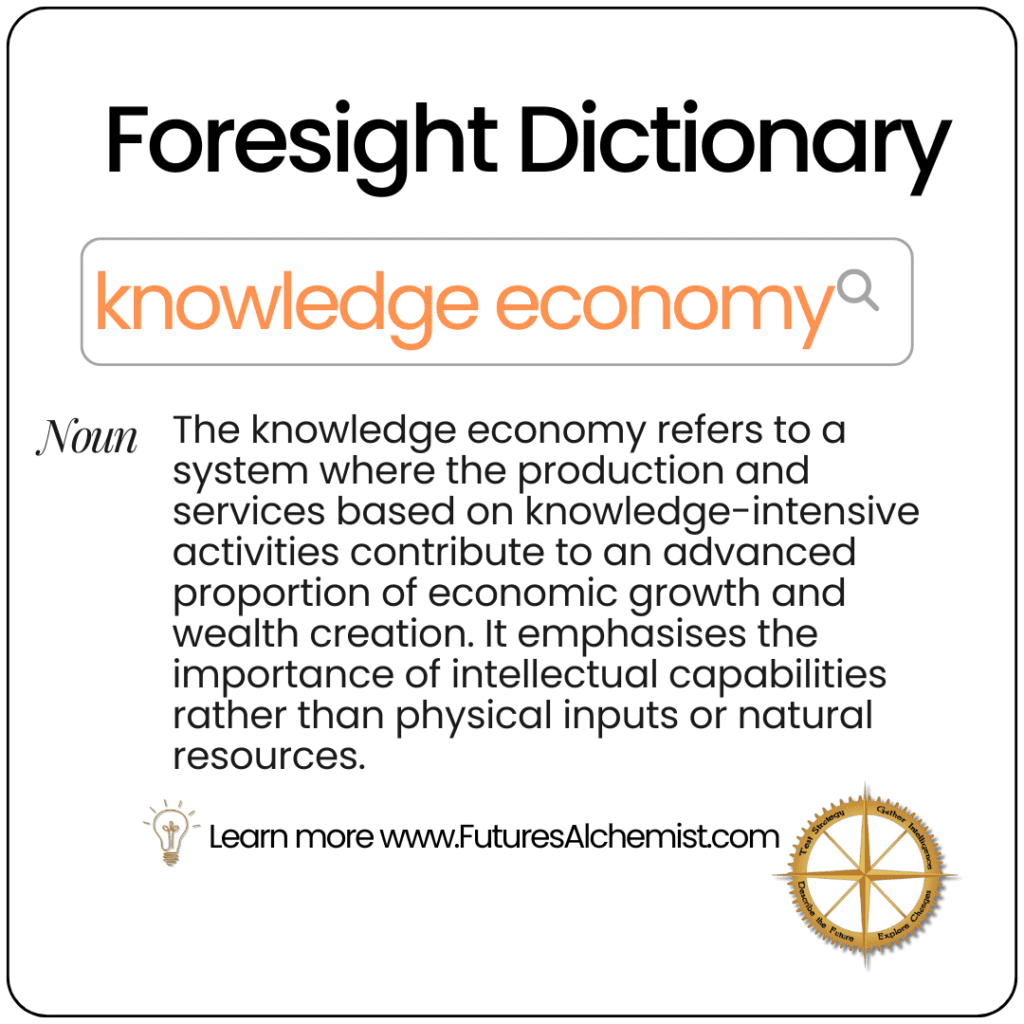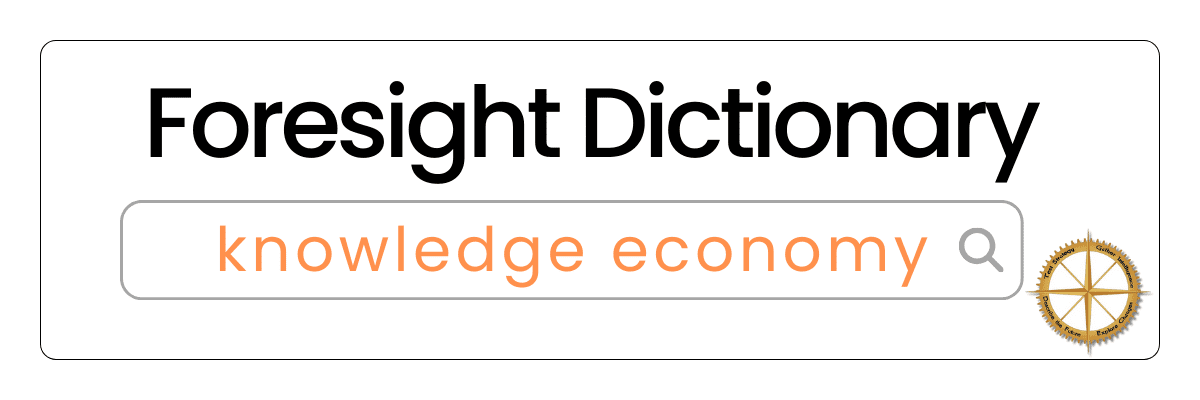

Definition
The knowledge economy refers to a system where the production and services based on knowledge-intensive activities contribute to an advanced proportion of economic growth and wealth creation. It emphasises the importance of intellectual capabilities rather than physical inputs or natural resources.
Example
Silicon Valley, California
This s a prime example of a knowledge economy in action. Companies like Apple, Google, and Facebook have created enormous value primarily through innovation, research, and development rather than through traditional manufacturing or resource extraction.
Ask yourself
- How is my industry being affected by the shift towards a knowledge economy?
- What skills and knowledge will be most valuable in the future job market?
- How can education systems adapt to prepare people for a knowledge-based economy?
- What are the potential social implications of a knowledge economy?
- How might the knowledge economy impact global economic disparities?
Tools
- SWOT Analysis: Assess strengths, weaknesses, opportunities, and threats in transitioning to a knowledge economy.
- Technology Roadmapping: Plan the development of knowledge-based technologies and services.
- Scenario Planning: Envision different possible futures for knowledge-based industries.
- Triple Helix Model: Analyse interactions between university, industry, and government in knowledge production.
- Intellectual Capital Valuation: Measure and manage intangible assets in a knowledge-based organisation.





